Churches and mosques in Tigray 'vandalised and looted' in Ethiopian purge
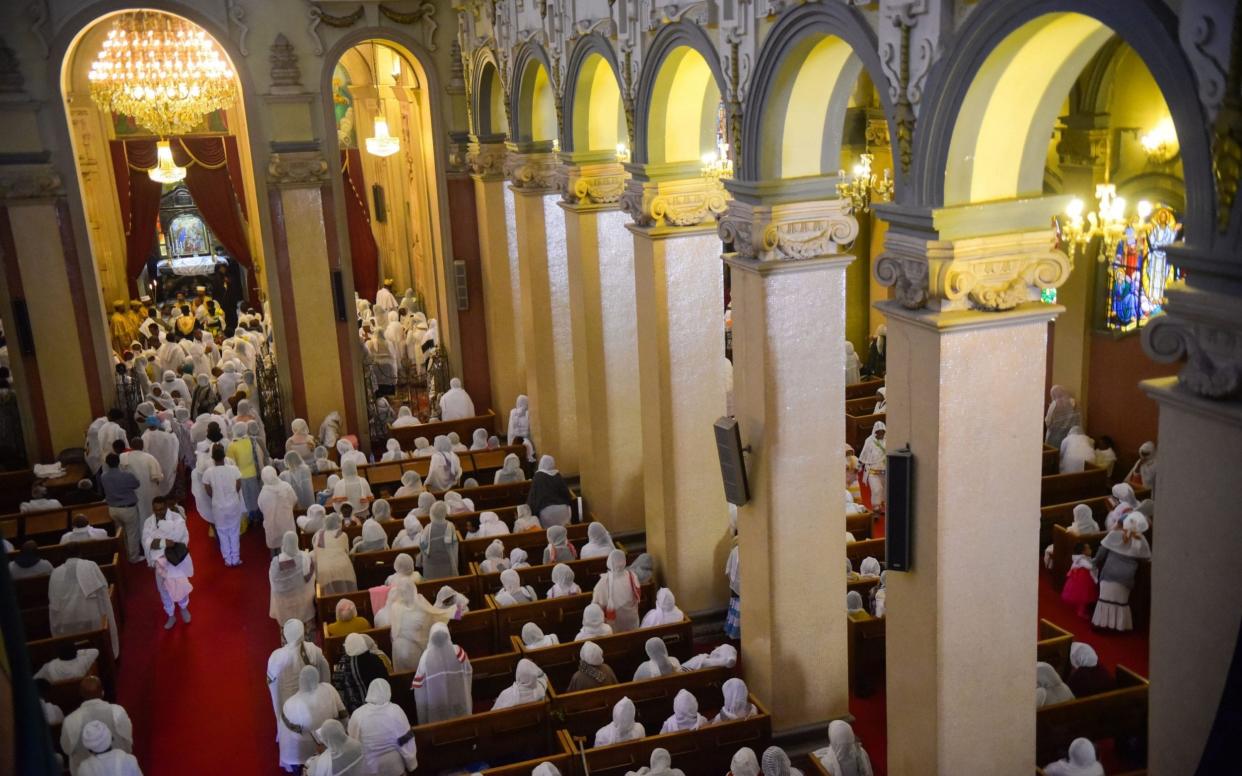
Churches and mosques in Ethiopia are being attacked and their sacred treasures looted in a catastrophic conflict in the northern Tigray region that is causing destruction, loss of life and a surge of refugees to Sudan, according to international experts.
They are warning of historical vandalism and "cultural cleansing", fearing that religious sites have not been exempt from shelling and that a nation is being robbed of its ancient religious heritage, to the distress of Ethiopians of all faiths.
There are reports of Christian manuscripts being stolen from churches and monasteries, and burned - with some manuscripts as old as the 13th century - and of historic Muslim sites being damaged and looted. They include the building housing the tombs of 12 of Muhammad’s companions, beside the Al-Nejashi Mosque at Negash, north of Wuqro - the most important Muslim pilgrim site in East Africa.
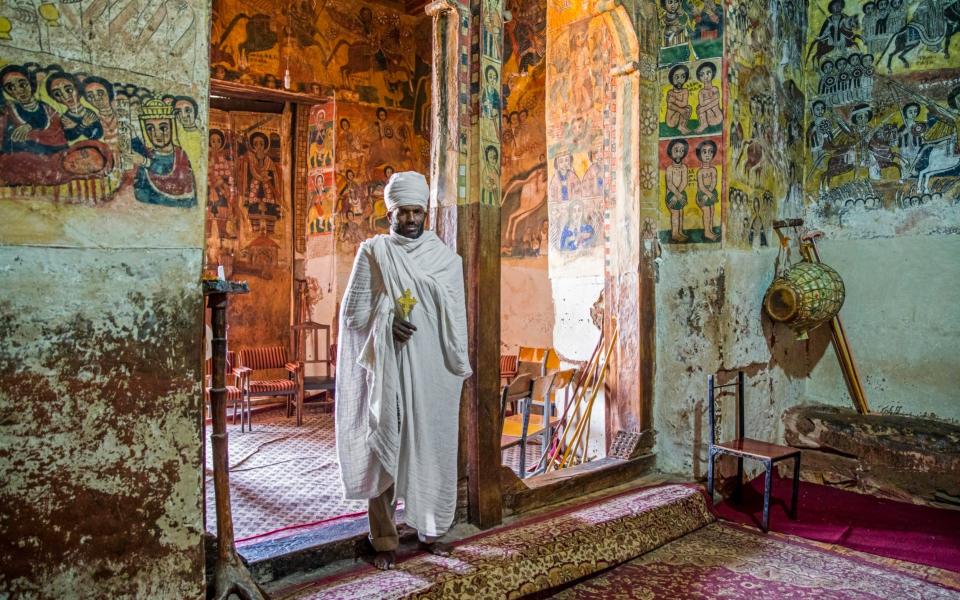
“This is cultural cleansing," warned Michael Gervers, a professor of history at the University of Toronto.
"The government and the Eritreans want to wipe out the Tigrayan culture. They think they’re better than rest of the people in the country. The looting is about destroying and removing the cultural presence of Tigray. We don’t know where it’s going yet. One of the first reports I had is that manuscripts were being driven south… They’re emptying the physical evidence of culture from the province.”
On 4 November, Ethiopia’s prime minister, Abiy Ahmed - who received the Nobel peace prize for ending a war with neighbouring Eritrea - ordered a military response to an attack by Tigray People’s Liberation Front (TPLF) forces on a military camp in the region. Both the Ethiopian and Eritrean governments have denied reports that Eritrean forces are in Tigray.
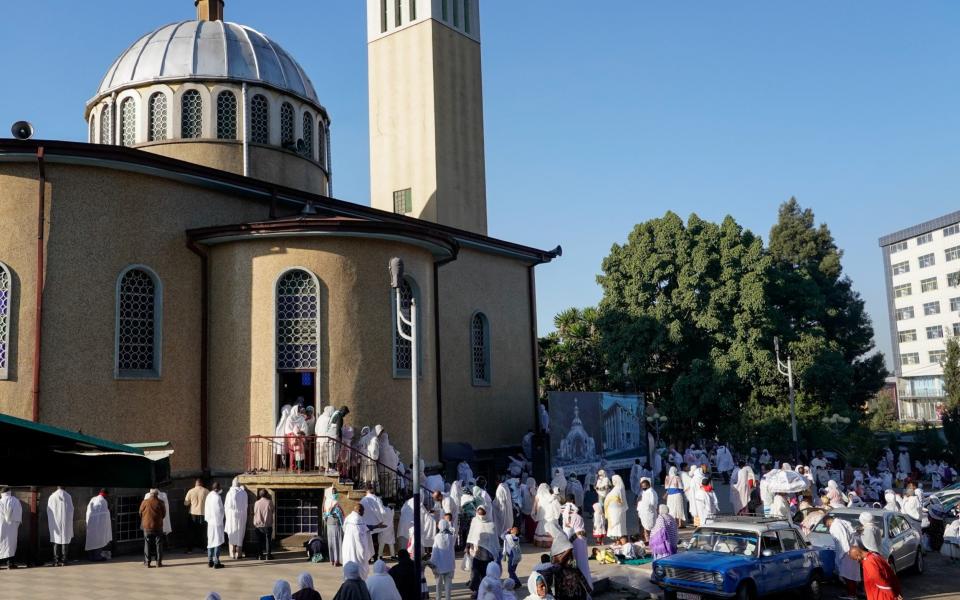
The United Nations has warned of mass killings in Tigray, as concern has grown for the safety of the refugees. The UN High Commissioner for Human Rights, Michelle Bachelet, said office had received allegations of international humanitarian law and human rights law violations, including artillery strikes on populated areas, the deliberate targeting of civilians, extrajudicial killings and widespread looting.
Christianity arrived in the ancient Aksumite kingdom, with its centre in today's Tigray, in the 4th century. Although Muslims founded their first mosque outside Mecca there in the early time of Muhammad, the community of Tigrayan Muslims is today a well-established minority.
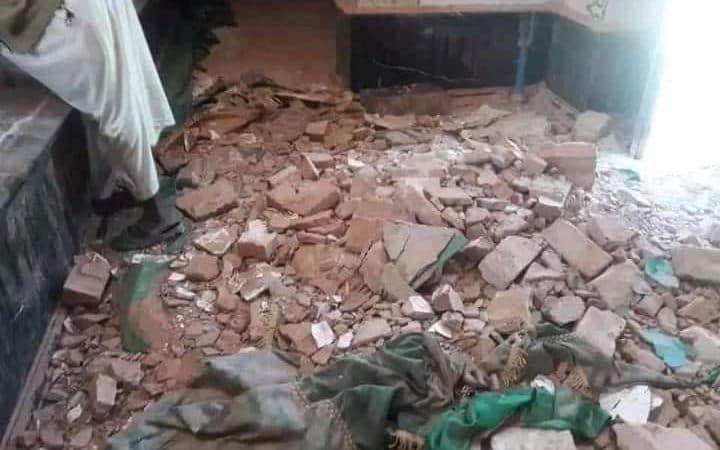
Tigray is home to thousands of churches and monasteries, with the oldest carved into rock-faces. Christian texts written in the classical language, Ge’ez, are among hundreds of thousands of sacred manuscripts in Ethiopia.
Prof Gervers spoke to the Telegraph about the “deplorable situation in Tigray”: “I know the province well, having worked there occasionally between 1982 and 1993, and annually since 2000. My objective has been to examine archaeological sites and to document Christian antiquities.”
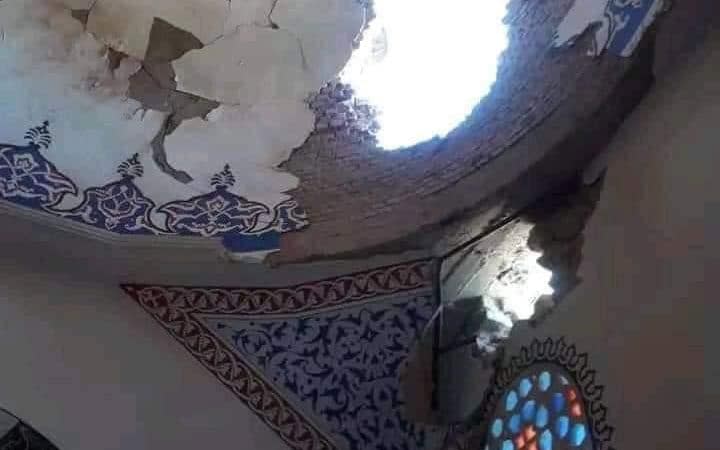
With a media blackout and local people frightened to talk, verifying reports is difficult, he said: “But I have heard that the ancient Muslim tomb at Negash has been badly damaged and the Amanuel church, which has sat on the top of a pinnacle for centuries, has been damaged through shelling. Around 800 Ge’ez manuscripts were looted from the Shire region… The list goes on. A Belgian team… managed to reach the town of Shire, where they videotaped a tank covered with looted goods.”
Dr Wolbert Smidt, a German academic who has long worked on historical sites in Tigray, said that “attacks and battles around, at and nearby such sites, show a very great danger for them”.
Referring to unverified reports of shootings around the most ancient and sacred church of Ethiopian Christianity, Maryam Tsion in Aksum - which is said to hold the Ark of the Covenant - and the attack on the tomb at Negash, he spoke of his shock that two of the most sacred sites for both Christians and Muslims have been targeted, perhaps from a “desire to attack places important for the local identity”.
He added that breaking “the traditional rule of sacred places being absolute sanctuaries” is a tragedy, both for an “already deeply-shocked local population” and the world’s heritage.
Prof Gervers said: “I've not heard more than rumours about the looting of the Arc from Maryam Tsion, but if it’s true that up to 750 died defending it, it is conceivable that the attackers didn't stop there.”
The International Tigrayan Muslims Association expressed outrage over the attack on the Al-Nejashi Mosque.
Prof Gervers called for “an intervention by whichever international power can pressure the Ethiopian government to lay off its onslaught”. He added: “To date, no one seems able or ready to step forward and call foul. If world powers stay aloof, it seems to suggest that they agree with what is going on.”
In an open letter of 13 January, academics from Hamburg University voiced alarm, calling for "the warring parties to abstain from attacking the cultural heritage and to respect the integrity of the places, both religious and secular".
Ethiopia's UK embassy said it was committed to the protecting its cultural heritage and blamed the TPLF for using cultural sites as shields with the intent of causing them damage.
A spokesperson said: “The facts on the ground are entirely detached from the situation painted herein by TPLF affiliates and those fooled by their campaign of misinformation. Instead, evidence shows that TPLF forces, in their fight to overthrow the government of Ethiopia, used ancient churches and mosques as shields, hiding places, and as depots to store their military supplies.
"This is being done with the ill-intent of causing destruction to these sites, in a desperate move to receive the attention of the international community. Ethiopia, a country of ancient civilisations, has the most UNESCO World Heritage Sites in Africa and is best known for cultural and religious tolerance. The government of Ethiopia is fully aware of the significance of the country’s ancient religious sites and remains fully committed for their protection.”

